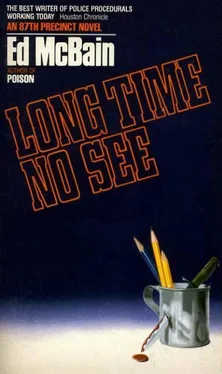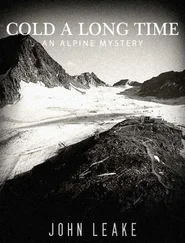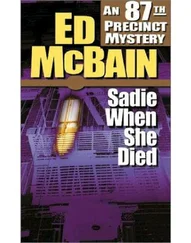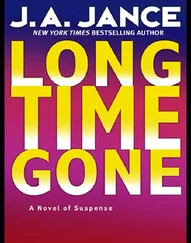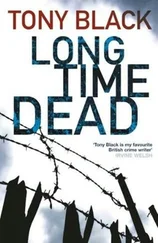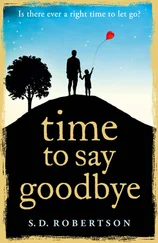If it was buried in the apartment, it had to be small; there were no fields or pastures in a city apartment. There were back yards, of course, and maybe Jimmy had gone down there to do his digging, if he’d done any digging at all, at all. This information would have to wait on the call to Meyer tonight or tomorrow morning. Tomorrow and tomorrow and tomorrow crept in this petty pace, but it never got to be Sunday. It was still twenty minutes to Sunday, and God knew how many weeks or months to Monday. Carella had the feeling Monday would never again come.
So here was this nice blind person named Jimmy Harris, whose mother thought he was cooking up a larcenous scheme involving guns, and here was his sweet and innocent blind wife, Isabel, who was painting the town red or at least living it up a bit in this or that motel with her employer, who was madly in love with her and who planned to marry her. A pair of nice blind people, one of whom was maybe planning something criminal, the other of whom was already doing something criminal, adultery being a crime in the city for which Carella worked — a Class B misdemeanor, no less, punishable by at least three months in jail or a fine of five hundred dollars.
He should have mentioned that to old Janet upstate there at Fort Mercer. He should have said, “Janet, do you know that there is a section of the Criminal Law titled ‘Adultery’ and defined as ‘Engaging in sexual intercourse with another person at a time when one has a living spouse, or the other person has a living spouse’? Did you know that, Janet?” But then again, she hadn’t invited him to break the law, she had only invited him to dinner at a great little restaurant she knew. And besides, why was he thinking of her once again while driving back home yet another time?
Hester Mathieson was another nice blind person who only happened to have a hooker for a niece. Which wasn’t bad, of course, if you didn’t mind the fact that the money your niece sent you was dirty money. Hester couldn’t have minded because first of all she didn’t know her niece was in the life, and secondly, she didn’t know that the C-notes coming to her irregularly were earned in a profession that was presumably victimless but that supplied the boys in the mob with the cash for the pursuit of other victimless crimes like selling dope to teenagers. Arthur may not have realized it tonight, but the sixty dollars he’d paid to old sloe-eyed Jasmine for his two hours of bliss with a prostitute went directly to the bad guys who were running the operation. And whereas Stephanie Welles, also known as Shana, hadn’t told Carella much, he knew for certain that a goodly portion of every nickel she received for those very good blowjobs she knew how to perform also went to the boys in the mob. The boys were not nice people, and whereas Carella could see no connection as yet between Shana’s occupation and the death of her aunt, he knew that where there was rat shit, you were bound and certain to find rats sooner or later.
So there they were, Jimmy and Isabel and Hester — three nice blinds, so to speak. Oh yes, they each and separately had a few skeletons hanging in the closet, but maybe this was meaningful and maybe it was not. And here was Carella, not knowing which way to turn next, knowing only that he had to handle this one the way he handled all the other ones. Dig for the facts, evaluate the facts — which he’d done already and which he had to admit left him exactly nowhere. And then dig for further facts, which you could then evaluate in the hope that they, too, would leave you exactly nowhere, in which case you could quit the force and become a street cleaner, or at least go home to sleep.
Carella yawned.
He bunched his fist again and wiped at the frosted windshield again, and then decided he would go to Diamondback in the morning to try to find out why Jimmy Harris’ nightmares had persisted long after the good Major Lemarre had exposed and explored and explained the trauma that had presumably caused them.
Carella was hoping against hope that it wouldn’t turn out to be the Eight-Three.
The Eight-Three was the precinct in which Fat Ollie Weeks worked.
Isola was divided into twenty-three precincts, and five of those were up in Diamondbacks The Diamond-back precincts were, for some reason known only to police commissioners past, numbered not in consecutive but in bi-consecutive order. First there was the Seven-Seven on the easternmost tip of the island, bordering Riverhead and taking in the area surrounding Devil’s Break. The Seven-Seven was considered a lucky precinct, but only because of the twin sevens and the allusion to the game of craps; actually, it had the highest crime rate in the entire city, higher even than the notorious Hundred and First in West Riverhead. The 101st was called Custer’s Last Stand in honor of Detective-Lieutenant Martin Custer, who ran the squad up there. It was a curiosity of police jargon that the 87th, for example, was referred to as the Eight-Seven, and the 93rd was referred to as the Nine-Three, but the 101st was called the Hundred and First rather than the One-Oh-One. Go figure it.
Moving right along, folks, the precinct west of the Seven-Seven was the Seven-Nine, bordering the River Harb and affording a fine view of the Hamilton Bridge from its squadroom windows — if you peeked through the peaks and minarets of a thousand some-odd tenements between the station house and the river. The Eight-One was on the other side of the Diamondback River and ran southward all the way to Hall Avenue, where North Diamondback officially became South Diamondback — try to pay attention, Harold. The Eight-Three and the Eight-Five sat like a pair of nuns, one facing the river, the other facing Hall Avenue, in that part of Diamondback bearing such religious names as St. Anthony’s Avenue and Bishop’s Road and Temple Boulevard and Tabernacle Way. The Eight-Seven, somewhat less sacrosanct except to those who worshipped it, bordered both on its eastern end. On the 87th’s north was the river, on its south was Grover Park. End of geography lesson.
Fat Ollie Weeks was a detective in the Eight-Three. Carella did not like working with him. That was only because Ollie was a bigot. Carella did not like bigots. Ollie was a good cop and an excellent bigot. His bigotry entended to everyone and everything. He missed being a misanthrope by a hair. That was because there were some people he actually liked. One of those people was Steve Carella. Since the affection was somewhat less than mutual, Carella tried to avoid wandering into the Eight-Three except out of dire necessity. Carella even avoided calling the Eight-Three unless a hatchet murderer was last seen on the steps leading up to the station house there. His dislike of Fat Ollie bordered on ingratitude; the man had, after all, helped them crack at least two cases in recent memory.
Carella hoped it would not be the Eight-Three. On the telephone he asked Sophie Harris where she’d been living when her son Jimmy was eighteen, and then held his breath in anticipation of her answer. The telephone line crackled and spit. Sophie said she’d lived on Landis and Dinsley. Carella let out his breath and then thanked her more profusely than her simple answer seemed to have warranted. Landis and Dinsley was in the Eight-Five.
They went up there at ten o’clock that Sunday morning. Meyer had a hangover, but he was able to report with some lucidity about what he’d discovered, or rather what he had not discovered, in the Harris apartment yesterday.
“The way I figure it,” he said, “something was buried in that window box, and somebody later dug it up.”
“Jimmy?”
“Maybe. Or maybe the killer. I packed a specimen of the dirt in an evidence—”
Читать дальше
